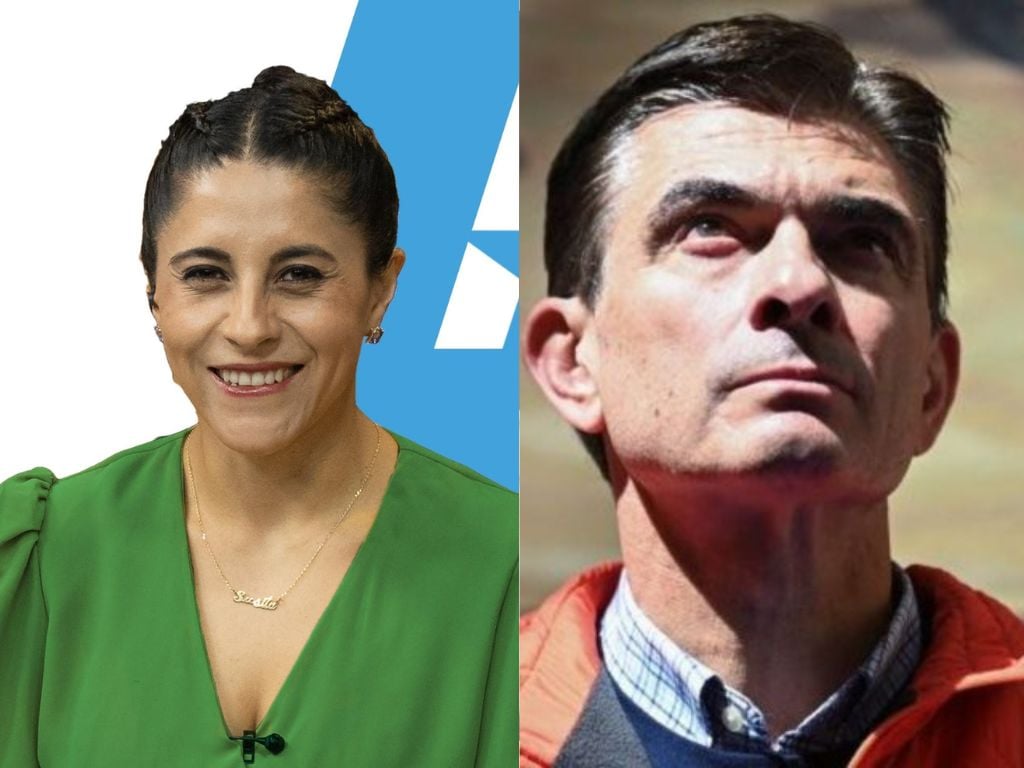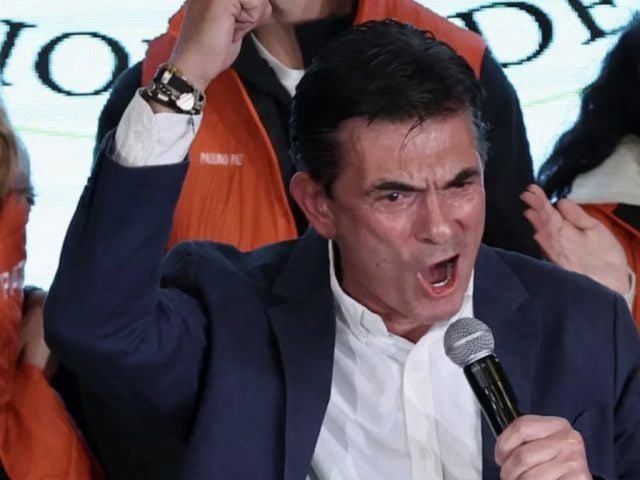Original article: La derecha gana en Bolivia: Rodrigo Paz, élite blanca criolla, llega al poder con discurso neoliberal-populista
Right-wing candidate Rodrigo Paz Pereira from the Christian Democratic Party (PDC) triumphed in the second round of Bolivia’s presidential elections this Sunday. His victory not only concludes nearly two decades of governance by the Movement for Socialism (MAS) but also marks the return of the white elite to power, through a discourse described as neoliberal-populist.
The Preliminary Electoral Results System (Sirepre) from the Supreme Electoral Tribunal (TSE) reported that with 97% of votes processed, Paz garnered 54.53% support, totaling 3,337,031 votes. His opponent, fellow right-wing Jorge «Tuto» Quiroga from the Libre Alliance, received 45.5%, sealing his fourth defeat in the quest for the presidency of the Plurinational State.
In a press conference, TSE President Óscar Hassenteufel stated that the trend «appears to be irreversible» and highlighted a significant civic participation of between 85% and 89% from over 7.9 million Bolivians eligible to vote. Rodrigo Paz is expected to be sworn in as head of state on November 8, at the Plurinational Legislative Assembly (ALP) in La Paz.
Rodrigo Paz’s Profile: Between the White Elite and Shadows of Corruption
At 57, Rodrigo Paz embodies the profile of Bolivia’s traditional elite. Born in Santiago de Compostela in 1967 to Spanish Carmen Pereira and former President Jaime Paz Zamora (1989-1993), his academic background in economics and international relations culminated in a master’s degree in political management from American University in Washington. He entered the Bolivian Congress only in 2022, initially serving as a deputy for Tarija and later as a national senator for the Community Citizen alliance.
However, experts question his image of «renewal,» citing his background and connections to corruption scandals.
Following the results of the first round of the general elections held on August 17, which led to Paz and Quiroga entering the runoff, Bolivian political scientist Susana Bejarano noted in an interview on Canal Ciudadano’s La Mañanera program that Paz «presents himself as a renewal figure, as someone new, but he has been in public affairs for 25 years and has serious corruption issues from his time as mayor of Tarija, where he was a councilor and then mayor.»
«In this territory, he achieves absolutely nothing (in terms of votes), not even a deputy, in what is supposed to be his territory. He comes from the white elite,» she stated.

Neoliberalism with Populist Discourse
One factor contributing to Paz’s victory, according to Bejarano’s analysis, was his partnership with Edman Lara, a former police chief and captain, who gained notoriety for exposing corruption within the police force but later faced accusations himself for alleged involvement.
«Lara became well-known through TikTok as a figure that continuously denounces the police institution, corrupt practices, and officers collecting bribes for infractions. He began making everyday corruption claims, which boosted his profile on social media and turned him into a sort of popular voice against corruption,» she explained.
This profile, though lacking experience in economic or state management, resonated deeply with citizen dissatisfaction. «What credentials can we assign to Captain Lara in terms of economy or state management? Absolutely none, but he is someone who managed to present himself as very close to people’s everyday problems,» Bejarano emphasized.
Bejarano went further by labeling Edman Lara as «a right-wing populist who has captured the popular vote with TikTok and his cell phone, launching insults at everyone and convincing voters who typically supported the left bloc.»
Within this duo lies the essence of their project: a neoliberal economic program framed within populist language.
«While Rodrigo Paz has a pure neoliberal economic program, he presents it with very populist language,» the political scientist stated, dismantling claims that some labeled him as left-center. «Though many have called him a social democrat or stated he is center-left, that’s not true. He is not center-left; he is a right-wing figure cloaked in populist discourse that appears closer to the people,» she highlighted in an interview with La Mañanera.
The journalist observed that «Rodrigo Paz comes from the white elite, while Edman Lara hails from the rising middle class that does not identify as indigenous.»
The Future of the Popular Bloc: Resistance and Defense of Social Achievements
In light of this new political landscape with the right in power, the significant question is the future of the popular bloc and the Plurinational State built over the past two decades. When asked about the way forward, Susana Bejarano was clear: resistance and reorganization are imperative to defend social achievements and national sovereignty.
«We need to rearticulate and engage in an institutional fight starting with sub-national elections. We have sub-national elections coming up in six months, where 327 municipalities will hold elections for departmental and municipal legislative bodies. All 9 governorships and these 327 municipalities will be at stake. Therefore, we also need to play a crucial role there,» she noted.
The journalist urged not to underestimate the impact of this setback for progressive forces, but instead to channel it into momentum for the upcoming electoral battle. «What we need to do is step up. The results are a slap in the face, but it is a slap that puts us back in contention for the sub-national elections and striving to achieve the best outcomes, especially in key areas,» Bejarano asserted.
Below, you can watch Susana Bejarano’s full interview on La Mañanera:

